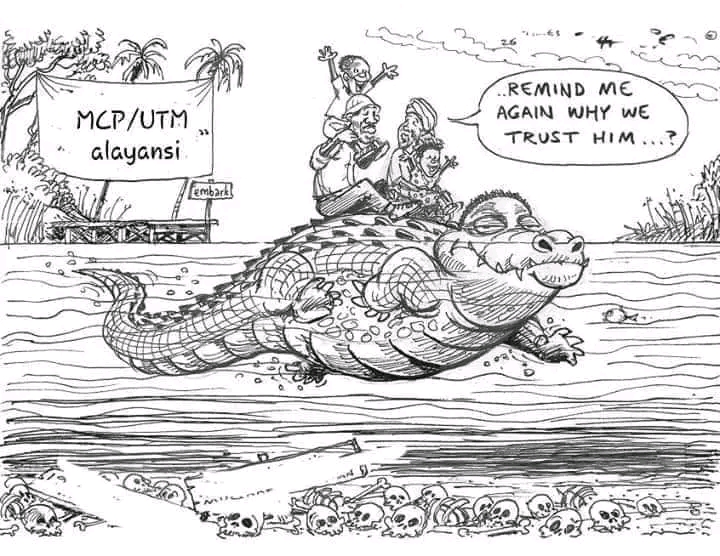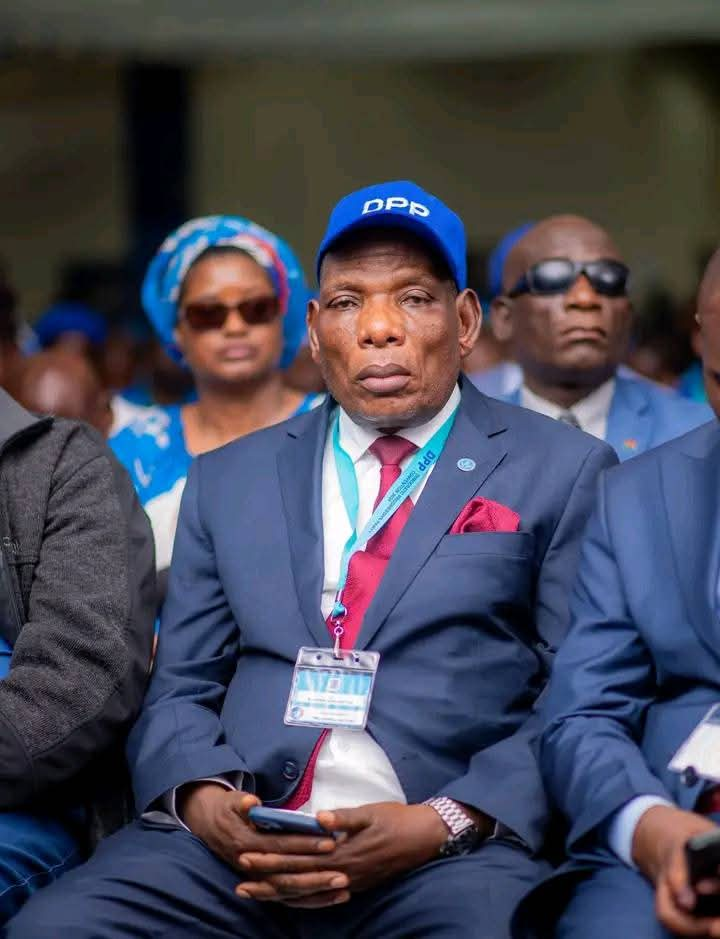By Burnett Munthali
In the turbulent world of politics, the value of timely and insightful advice cannot be overstated. However, a recurring theme is the tendency of political figures and alliances to disregard this guidance, particularly when faced with imminent challenges. Despite the abundance of free advisors and critical warnings from commentators and cartoonists, decision-makers often fail to heed these insights, a phenomenon captured by the proverb, “Ng’ona ndi ng’ona, singasinthe kukhala nkhosa yofatsa” (A crocodile remains a crocodile; it cannot become a gentle sheep).
Throughout political campaigns and alliances, a wealth of free advice is available. Advisors, experts, and commentators offer invaluable insights and strategic recommendations designed to help navigate complex political landscapes. Cartoonists, through their sharp satire and visual critiques, also play a crucial role in highlighting potential pitfalls and warning of impending issues.
Despite this abundance of free and often critical guidance, there is a notable tendency for political figures to ignore or dismiss these warnings. The reluctance to listen to external advice can be attributed to various factors, including arrogance, a fixed mindset, or an overestimation of one’s own judgment.
The proverb “Ng’ona ndi ng’ona, singasinthe kukhala nkhosa yofatsa” translates to “A crocodile remains a crocodile; it cannot become a gentle sheep.” This saying reflects the idea that inherent traits and behaviors are deeply ingrained and resistant to change. In political terms, it suggests that some leaders or political entities are fundamentally resistant to altering their approach, even in the face of overwhelming evidence or expert advice.
This resistance becomes particularly problematic as crises loom. When political figures approach critical junctures, their tendency to stop listening to advisors and ignore warnings can lead to disastrous outcomes. This behavior is akin to a person who, as they near the end of their life, ceases to listen to advice, often to their detriment.
The impact of disregarding advice can be profound for political alliances. Alliances, which are often formed with high expectations and strategic goals, can falter when key players refuse to adapt or listen to constructive feedback. The failure to heed warnings and adjust strategies can lead to strategic missteps, public disillusionment, and eventual collapse.
Cartoonists and commentators who offer critical feedback are not merely providing entertainment or opposition; they are often highlighting genuine concerns and potential pitfalls. Ignoring these insights can result in missed opportunities for improvement and a lack of preparedness for challenges.
To overcome the pitfalls associated with ignoring advice, political leaders should:
1) Actively Listen: Engage with advisors and consider their feedback seriously. Being open to external perspectives is crucial for informed decision-making.
2) Acknowledge Warnings: Recognize the value of warnings and critiques, and understand that they often stem from a place of expertise and experience.
3) Adapt Strategies: Be willing to adjust plans and strategies based on feedback. Flexibility and adaptability are key to navigating complex political environments successfully.
4) Cultivate Humility: Maintain a level of humility that allows for the acceptance of constructive criticism and the acknowledgment of one’s own limitations.
In conclusion , theproverb “Ng’ona ndi ng’ona, singasinthe kukhala nkhosa yofatsa” serves as a poignant reminder of the challenges in adapting to advice and change. In the political sphere, where free advice is abundant and critical warnings are plentiful, the failure to listen and adapt can have serious consequences. By valuing and embracing the guidance offered by advisors and commentators, political figures can better navigate challenges, avoid pitfalls, and achieve more effective and successful outcomes




